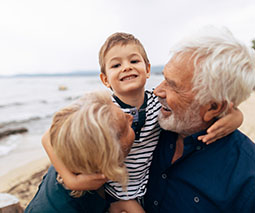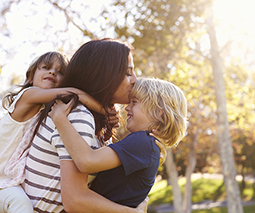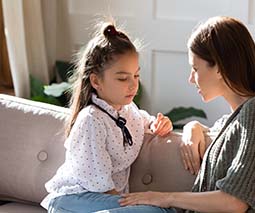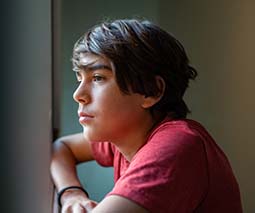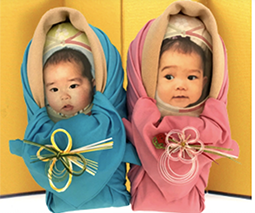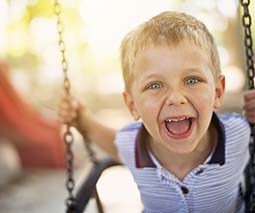How to help your child understand the death of a loved one or pet
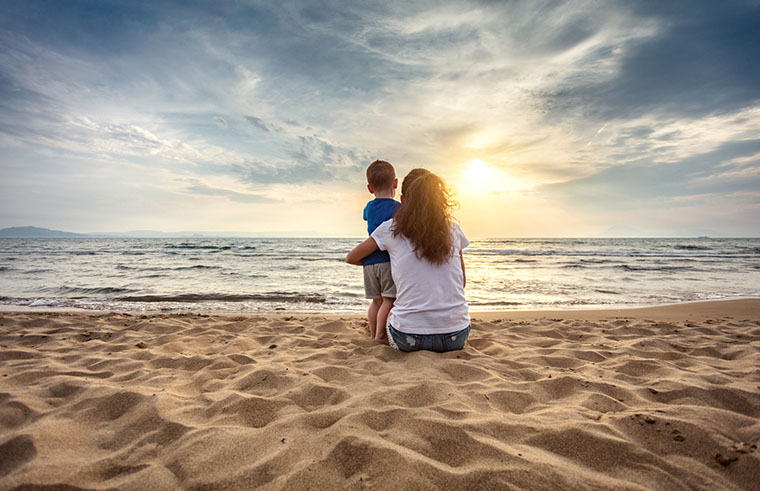
Our culture tends to try to hide death from children, hoping to protect them from the ‘scary’ realities of life and cushion them from worry and grief.
Clinical psychologist Kerrie Noonan says this approach is not doing anybody any favours and that it’s time for a rethink.
Rethinking hard conversations
Kerrie is director of The Groundswell Project, an initiative that aims to shift the way we discuss and process issues around dying.
As The Groundswell Project explains on their website, “Our superstitions, fears about dying and the discomfort we feel, affect our approach and experiences of the end of life. We reckon it’s time for an upgrade on how we go about our dying matters.”
Listen to Kerrie Noonan on Feed Play Love:
Kerrie argues that open and honest age-appropriate conversations about death should be a natural part of a child’s development – and that it’s really important for children who are naturally curious about death to be allowed to ask questions – and get some answers.
How to help your child understand the death of a loved one or pet
But where to start with such big conversations, you might be wondering, especially when it’s (often very sad or bewildered) little people sitting opposite us?
Kerrie says we should start with the basics …
1. Discuss the physical facts
“Start with the concrete – what you can and can’t do when you’re dead. They will come back to that lots of times.
“So don’t think that kids don’t understand because they ask, ‘what’s dead?’ again,” she stresses, noting that you might then hear them playing and saying things like, “yes and her heart stopped and her brain doesn’t work anymore” as they attempt to process what they’ve learned.
It may take some time – and LOTS of curious questions – before they really start to grasp the concept, so be patient.
2. Separate spirit and body
While having a place – like heaven or a star – to reconcile where a person or pet has ‘gone’ to when they’ve died can make concepts around death more tangible for children, Kerrie says it’s important to stress that their spirit has moved on, rather than their body.
“Just separate out the spirit or the soul,” Kerrie advises parents. “In that star or that symbol or whatever, say that’s man’s spirit.”
Without some discussion of body and spirit after death, some children might want to go to heaven or a special star to visit the person who has died. Or they may become confused when they visit the graveside of a loved one – if they are buried in the ground, how are they also in heaven? Separating the ides of the body and the soul/spirit can help clarify things for kids.
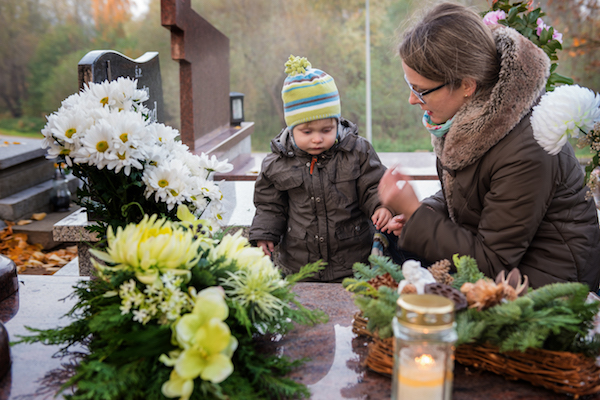
3. Be vulnerable and don’t feel you need to have all the answers
Speak honestly about how you feel when a person or pet has died. It’s perfectly okay to be vulnerable and open, letting your child know that issues around death can be a bit hard to process, talk about and understand – for everyone.
“Be prepared to say ‘I don’t know’ and ‘I know it’s really sad, yes it makes me feel sad too’,” Kerrie says.
4. Use kids’ curiosity as an opportunity to have big conversations
“We don’t shy away from other conversations when kids are curious because we see it as developmentally appropriate,” Kerrie points out. “So I think roll with the curiosity.”
Avoiding hard conversations is a missed opportunity, because these are some of the most transformative moments parents can support their children through.
“If we’re worried that kids are going to be afraid, the best way to deal with those fears is actually to be a parent and be there for them.”
5. Encourage a family culture that doesn’t conceal death
“I would encourage most people to take their kids to funerals,” Kerrie says. “There’s lots of ways you can make funerals child-friendly. It gives you an opportunity to talk again about death and to draw on a real experience in the future.”
 Need some support to be the best parent you can be? Our Parent School parent coaching experts can help. Click to find out more or book a one-on-one session.
Need some support to be the best parent you can be? Our Parent School parent coaching experts can help. Click to find out more or book a one-on-one session.
